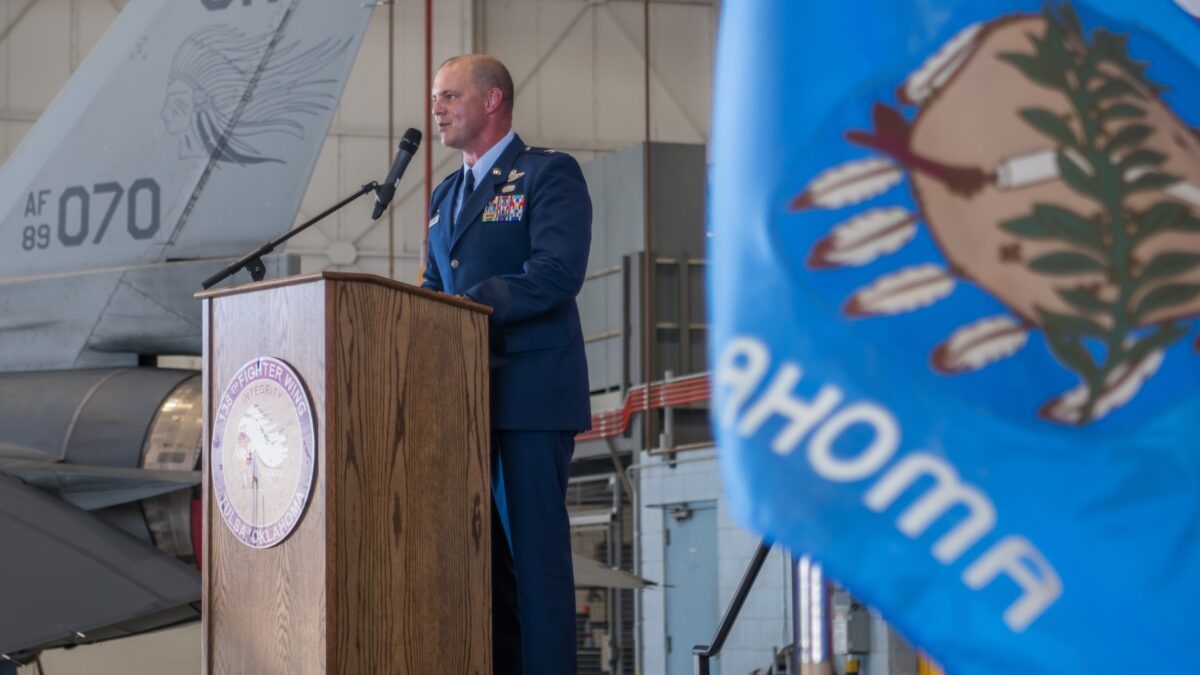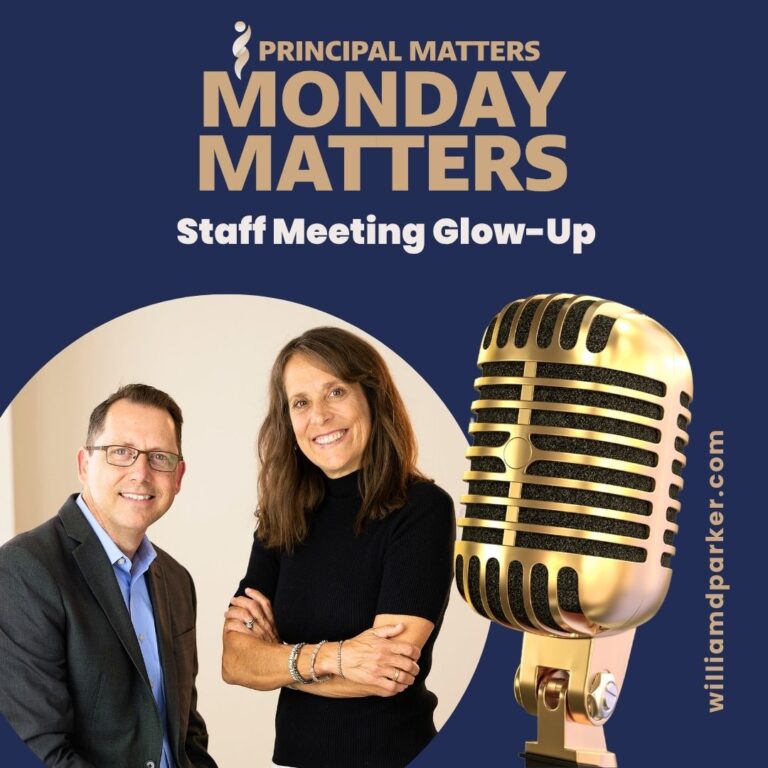Podcast: Play in new window | Download
Leadership is tactical, operational and strategic. These are three words Colonel Brad Ruttman has learned as the framework for understanding how to help others accomplish their goals. In this week’s episode, I had the privilege of learning lessons from a fighter pilot that also apply for all leaders, including in education.

Meet Colonel Brad Ruttman
Col. Brad Ruttman is a 21-year veteran of the US Air Force and currently serves as the Operations Group Commander for the 138th Fighter Wing. He has commanded at the tactical, operational, and strategic levels and is a graduate of Air War College. As an F-16 fighter pilot, Col Ruttman has 5 combat tours and over 100 combat sorties in Iraq and Afghanistan. He is the recipient of several military awards to include 2 Meritorious Service Medals, 4 Combat Air Medals, the Aerial Achievement Medal and the Iraq and Afghanistan Campaign Medals. He resides in Owasso, OK with his wife Stephanie and their five children: JJ, Christian, Coleman, Savannah, and Dawson. All five of his children attend Owasso Public Schools.
A Leadership Pocketbook
Listen to the entire podcast episode for the full conversation. Here is a short summary of our talk:
WDP: Thank you again for being on the show. School leaders have a lot to learn from other leaders. As I think about strategic and operational leadership, I wanted to ask you to unpack areas that may help any leaders apply lessons to their own teams. Let’s jump in:
Col. Ruttman: When I finished college with a degree in engineering, I was looking for my first job in the field. I always wanted to be in the military. When I realized the Air Force also had an engineering squadron, I decided to enlist for four years. I discovered I loved being in the Air Force, but I didn’t enjoy being an engineer. When I saw how much fighter pilots loved their work, I thought that is what I want to do. Through some hard work and the grace of God, I was able to do that. It definitely wasn’t the normal path to becoming a fighter pilot.
WDP: First of all, thank you for your service to our country. In addition to your training as a pilot, you’ve also learned a lot about leadership. You keep a running list of lessons you think about when considering managing a new command. What are those areas, and then can you choose one or two to unpack?
Col. Ruttman: In the military and in education, you go from follower to leader quickly. As I have gone through leadership training and conferences, I have kept a running list that I call ‘pocket leadership’ that I share with others in my work. At a Commander’s Development course, I heard presentations from other officers, and it inspired me to begin writing down lessons I could share with others. Here is a short summary:
Leadership steps for a new command:
- Set boundaries/instill discipline
- Project empathy/right any wrongs
- Build trust
- Lead your people where they are
- Seek first to understand, then to be understood (Covey)
- Stay sharp
- Never think “you’ve arrived”
- Think like your boss’s boss
- Beware of the Bathsheba Syndrome
- Study Psychology
WDP: From that list, can you talk about “Set boundaries/instill discipline”?
Col. Ruttman: I remember going through officer training school and watching a movie about a stoic, stone-faced leader. That’s what most of us envision as young leaders, but leaders are more than that. They are tactical, operational, AND strategic. In schools, you may think of teachers as tactical, principals as operational and superintendents as strategic. To be a better leader at the operational and strategic level, you must first learn at the tactical level. It is important to set boundaries and be clear about your vision and expectationsat the beginning. Brene Brown’s video on boundaries is a great resource for leaders. Once you’ve set boundaries, then you can find ways to meet needs and challenges.
WDP: That’s so true. Good educators create strong processes and expectations before learning can happen. You also talk about projecting empathy/righting any wrongs. How do you unpack those?
Col. Ruttman: You could really place together the areas of ‘project empathy/right any wrongs’, ‘build trust’, and ‘lead your people where they are’. When Colin Powell was asked the most important element of leadership, he said, “Trust.” When people trust you, then they will follow you, and you can find out what they need and serve them where they are.
When I became a fighter pilot, I learned to do the best job I could as a weapon in the arsenal of the U.S. Air Force. When I moved into the operational sector, my first job in the squadron was to be a scheduler. This meant with working with people who were and were not fighter pilots, including maintainers. There was a lot of friction among some of those who flew, those in maintenance, and some in strategic leadership.
Because I believe relationships are important, it was alot of work constantly trying to keep the peace and finding win-win outcomes. Later I was selected as one of the maintenance squadron commanders, even though I was a pilot. This meant I was now the boss over the maintainers I was previously have to negotiate with. At first they were suspicious of me, so my #1 priority was to build trust. I spent my first year just keeping my mouth shut and building relationships. By the end of my command, I feel like I strengthened the pilot/maintainer relationships and has also made lifelong friends.
Because I had taken the time on the front end to build relationships, they knew my requests were not based on an agenda, but what I felt was best for them and the overall mission.
WDP: What a great reminder of how trust allows us to accomplish operational goals. As we wrap up, could you share some books or resources you would encourage leaders to read?
Col. Ruttman: I have several favorite leadership books:
Emotional Intelligence 2.0 by Travis Bradberry and Jean Greaves
Four Lenses Unfolded: A Deeper Understanding of Temperament Values by Nathan Bryce
The SPEED of Trust: The One Thing That Changes Everything by Stephen M .R. Covey
WDP: Would you be willing to come back for a follow-up episode to unpack more lessons in leadership?
Col. Ruttman: Absolutely! I think leaders only grow when they are willing to take time for introspection.
Now It’s Your Turn
Listen to the entire podcast episode for the full conversation with Col. Ruttman and more takeaways. As you are serving others this week, what is one way you can keep building trust so that others are willing to accomplish the goals you set together? How can you practice ‘understanding before being understood’? Thanks again for doing what matters!




